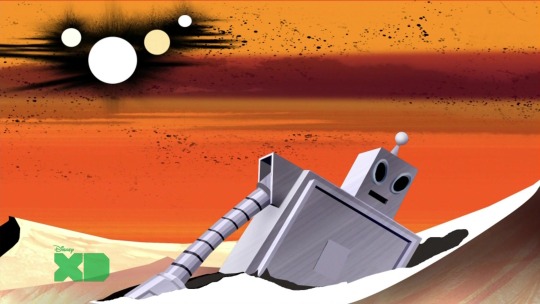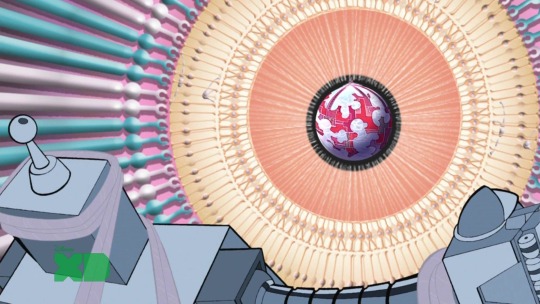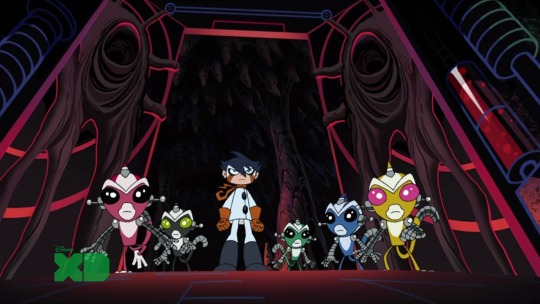#Web Integrity
Explore tagged Tumblr posts
Text
Replacing physical buttons and controls with touchscreens also means removing accessibility features. Physical buttons can be textured or have Braille and can be located by touch and don't need to be pressed with a bare finger. Touchscreens usually require precise taps and hand-eye coordination for the same task.
Many point-of-sale machines now are essentially just a smartphone with a card reader attached and the interface. The control layout can change at a moment's notice and there are no physical boundaries between buttons. With a keypad-style machine, the buttons are always in the same place and can be located by touch, especially since the middle button has a raised ridge on it.
Buttons can also be located by touch without activating them, which enables a "locate then press" style of interaction which is not possible on touchscreens, where even light touches will register as presses and the buttons must be located visually rather than by touch.
When elevator or door controls are replaced by touch screens, will existing accessibility features be preserved, or will some people no longer be able to use those controls?
Who is allowed to control the physical world, and who is making that decision?
#i get why this is happening; it's way cheaper to buy an off-the-shelf touch kiosk or tablet and run your ui on a web server#rather than integrating with custom hardware and physical inputs#but that should not just removing accessibility features#and I know that digital devices can help a lot with accessibility: e.g. screen readers#but I wouldn't rely on any of those being installed on someone else's device
49K notes
·
View notes
Text
youtube
Google's trying to DRM the internet, and we have to make sure they fail
#Ad Blockers#Manifest V3#Privacy#Security#Extensions#Web Browsers#Free Speech#Web Environment Integrity#DRM#Internet#Web Browser#Streaming#Netflix#Google#Firefox#Alternative Browsers#Internet Freedom#Web Integrity#Online Safety#Tech News#Digital Privacy#Web Technology#User Privacy#Web Standards#Internet Regulation#Internet Control#Content Protection#Web Browser Privacy#Web Browser Security#Web Security
0 notes
Text
Autoenshittification

Forget F1: the only car race that matters now is the race to turn your car into a digital extraction machine, a high-speed inkjet printer on wheels, stealing your private data as it picks your pocket. Your car’s digital infrastructure is a costly, dangerous nightmare — but for automakers in pursuit of postcapitalist utopia, it’s a dream they can’t give up on.
Your car is stuffed full of microchips, a fact the world came to appreciate after the pandemic struck and auto production ground to a halt due to chip shortages. Of course, that wasn’t the whole story: when the pandemic started, the automakers panicked and canceled their chip orders, only to immediately regret that decision and place new orders.
But it was too late: semiconductor production had taken a serious body-blow, and when Big Car placed its new chip orders, it went to the back of a long, slow-moving line. It was a catastrophic bungle: microchips are so integral to car production that a car is basically a computer network on wheels that you stick your fragile human body into and pray.
The car manufacturers got so desperate for chips that they started buying up washing machines for the microchips in them, extracting the chips and discarding the washing machines like some absurdo-dystopian cyberpunk walnut-shelling machine:
https://www.autoevolution.com/news/desperate-times-companies-buy-washing-machines-just-to-rip-out-the-chips-187033.html
These digital systems are a huge problem for the car companies. They are the underlying cause of a precipitous decline in car quality. From touch-based digital door-locks to networked sensors and cameras, every digital system in your car is a source of endless repair nightmares, costly recalls and cybersecurity vulnerabilities:
https://www.reuters.com/business/autos-transportation/quality-new-vehicles-us-declining-more-tech-use-study-shows-2023-06-22/
What’s more, drivers hate all the digital bullshit, from the janky touchscreens to the shitty, wildly insecure apps. Digital systems are drivers’ most significant point of dissatisfaction with the automakers’ products:
https://www.theverge.com/23801545/car-infotainment-customer-satisifaction-survey-jd-power
Even the automakers sorta-kinda admit that this is a problem. Back in 2020 when Massachusetts was having a Right-to-Repair ballot initiative, Big Car ran these unfuckingbelievable scare ads that basically said, “Your car spies on you so comprehensively that giving anyone else access to its systems will let murderers stalk you to your home and kill you:
https://pluralistic.net/2020/09/03/rip-david-graeber/#rolling-surveillance-platforms
But even amid all the complaining about cars getting stuck in the Internet of Shit, there’s still not much discussion of why the car-makers are making their products less attractive, less reliable, less safe, and less resilient by stuffing them full of microchips. Are car execs just the latest generation of rubes who’ve been suckered by Silicon Valley bullshit and convinced that apps are a magic path to profitability?
Nope. Car execs are sophisticated businesspeople, and they’re surfing capitalism’s latest — and last — hot trend: dismantling capitalism itself.
Now, leftists have been predicting the death of capitalism since The Communist Manifesto, but even Marx and Engels warned us not to get too frisky: capitalism, they wrote, is endlessly creative, constantly reinventing itself, re-emerging from each crisis in a new form that is perfectly adapted to the post-crisis reality:
https://www.nytimes.com/2022/10/31/books/review/a-spectre-haunting-china-mieville.html
But capitalism has finally run out of gas. In his forthcoming book, Techno Feudalism: What Killed Capitalism, Yanis Varoufakis proposes that capitalism has died — but it wasn’t replaced by socialism. Rather, capitalism has given way to feudalism:
https://www.penguin.co.uk/books/451795/technofeudalism-by-varoufakis-yanis/9781847927279
Under capitalism, capital is the prime mover. The people who own and mobilize capital — the capitalists — organize the economy and take the lion’s share of its returns. But it wasn’t always this way: for hundreds of years, European civilization was dominated by rents, not markets.
A “rent” is income that you get from owning something that other people need to produce value. Think of renting out a house you own: not only do you get paid when someone pays you to live there, you also get the benefit of rising property values, which are the result of the work that all the other homeowners, business owners, and residents do to make the neighborhood more valuable.
The first capitalists hated rent. They wanted to replace the “passive income” that landowners got from taxing their serfs’ harvest with active income from enclosing those lands and grazing sheep in order to get wool to feed to the new textile mills. They wanted active income — and lots of it.
Capitalist philosophers railed against rent. The “free market” of Adam Smith wasn’t a market that was free from regulation — it was a market free from rents. The reason Smith railed against monopolists is because he (correctly) understood that once a monopoly emerged, it would become a chokepoint through which a rentier could cream off the profits he considered the capitalist’s due:
https://locusmag.com/2021/03/cory-doctorow-free-markets/
Today, we live in a rentier’s paradise. People don’t aspire to create value — they aspire to capture it. In Survival of the Richest, Doug Rushkoff calls this “going meta”: don’t provide a service, just figure out a way to interpose yourself between the provider and the customer:
https://pluralistic.net/2022/09/13/collapse-porn/#collapse-porn
Don’t drive a cab, create Uber and extract value from every driver and rider. Better still: don’t found Uber, invest in Uber options and extract value from the people who invest in Uber. Even better, invest in derivatives of Uber options and extract value from people extracting value from people investing in Uber, who extract value from drivers and riders. Go meta.
This is your brain on the four-hour-work-week, passive income mind-virus. In Techno Feudalism, Varoufakis deftly describes how the new “Cloud Capital” has created a new generation of rentiers, and how they have become the richest, most powerful people in human history.
Shopping at Amazon is like visiting a bustling city center full of stores — but each of those stores’ owners has to pay the majority of every sale to a feudal landlord, Emperor Jeff Bezos, who also decides which goods they can sell and where they must appear on the shelves. Amazon is full of capitalists, but it is not a capitalist enterprise. It’s a feudal one:
https://pluralistic.net/2022/11/28/enshittification/#relentless-payola
This is the reason that automakers are willing to enshittify their products so comprehensively: they were one of the first industries to decouple rents from profits. Recall that the reason that Big Car needed billions in bailouts in 2008 is that they’d reinvented themselves as loan-sharks who incidentally made cars, lending money to car-buyers and then “securitizing” the loans so they could be traded in the capital markets.
Even though this strategy brought the car companies to the brink of ruin, it paid off in the long run. The car makers got billions in public money, paid their execs massive bonuses, gave billions to shareholders in buybacks and dividends, smashed their unions, fucked their pensioned workers, and shipped jobs anywhere they could pollute and murder their workforce with impunity.
Car companies are on the forefront of postcapitalism, and they understand that digital is the key to rent-extraction. Remember when BMW announced that it was going to rent you the seatwarmer in your own fucking car?
https://pluralistic.net/2020/07/02/big-river/#beemers
Not to be outdone, Mercedes announced that they were going to rent you your car’s accelerator pedal, charging an extra $1200/year to unlock a fully functional acceleration curve:
https://www.theverge.com/2022/11/23/23474969/mercedes-car-subscription-faster-acceleration-feature-price
This is the urinary tract infection business model: without digitization, all your car’s value flowed in a healthy stream. But once the car-makers add semiconductors, each one of those features comes out in a painful, burning dribble, with every button on that fakakta touchscreen wired directly into your credit-card.
But it’s just for starters. Computers are malleable. The only computer we know how to make is the Turing Complete Von Neumann Machine, which can run every program we know how to write. Once they add networked computers to your car, the Car Lords can endlessly twiddle the knobs on the back end, finding new ways to extract value from you:
https://doctorow.medium.com/twiddler-1b5c9690cce6
That means that your car can track your every movement, and sell your location data to anyone and everyone, from marketers to bounty-hunters looking to collect fees for tracking down people who travel out of state for abortions to cops to foreign spies:
https://www.vice.com/en/article/n7enex/tool-shows-if-car-selling-data-privacy4cars-vehicle-privacy-report
Digitization supercharges financialization. It lets car-makers offer subprime auto-loans to desperate, poor people and then killswitch their cars if they miss a payment:
https://www.youtube.com/watch?v=4U2eDJnwz_s
Subprime lending for cars would be a terrible business without computers, but digitization makes it a great source of feudal rents. Car dealers can originate loans to people with teaser rates that quickly blow up into payments the dealer knows their customer can’t afford. Then they repo the car and sell it to another desperate person, and another, and another:
https://pluralistic.net/2022/07/27/boricua/#looking-for-the-joke-with-a-microscope
Digitization also opens up more exotic options. Some subprime cars have secondary control systems wired into their entertainment system: miss a payment and your car radio flips to full volume and bellows an unstoppable, unmutable stream of threats. Tesla does one better: your car will lock and immobilize itself, then blare its horn and back out of its parking spot when the repo man arrives:
https://tiremeetsroad.com/2021/03/18/tesla-allegedly-remotely-unlocks-model-3-owners-car-uses-smart-summon-to-help-repo-agent/
Digital feudalism hasn’t stopped innovating — it’s just stopped innovating good things. The digital device is an endless source of sadistic novelties, like the cellphones that disable your most-used app the first day you’re late on a payment, then work their way down the other apps you rely on for every day you’re late:
https://restofworld.org/2021/loans-that-hijack-your-phone-are-coming-to-india/
Usurers have always relied on this kind of imaginative intimidation. The loan-shark’s arm-breaker knows you’re never going to get off the hook; his goal is in intimidating you into paying his boss first, liquidating your house and your kid’s college fund and your wedding ring before you default and he throws you off a building.
Thanks to the malleability of computerized systems, digital arm-breakers have an endless array of options they can deploy to motivate you into paying them first, no matter what it costs you:
https://pluralistic.net/2021/04/02/innovation-unlocks-markets/#digital-arm-breakers
Car-makers are trailblazers in imaginative rent-extraction. Take VIN-locking: this is the practice of adding cheap microchips to engine components that communicate with the car’s overall network. After a new part is installed in your car, your car’s computer does a complex cryptographic handshake with the part that requires an unlock code provided by an authorized technician. If the code isn’t entered, the car refuses to use that part.
VIN-locking has exploded in popularity. It’s in your iPhone, preventing you from using refurb or third-party replacement parts:
https://doctorow.medium.com/apples-cement-overshoes-329856288d13
It’s in fuckin’ ventilators, which was a nightmare during lockdown as hospital techs nursed their precious ventilators along by swapping parts from dead systems into serviceable ones:
https://www.vice.com/en/article/3azv9b/why-repair-techs-are-hacking-ventilators-with-diy-dongles-from-poland
And of course, it’s in tractors, along with other forms of remote killswitch. Remember that feelgood story about John Deere bricking the looted Ukrainian tractors whose snitch-chips showed they’d been relocated to Russia?
https://doctorow.medium.com/about-those-kill-switched-ukrainian-tractors-bc93f471b9c8
That wasn’t a happy story — it was a cautionary tale. After all, John Deere now controls the majority of the world’s agricultural future, and they’ve boobytrapped those ubiquitous tractors with killswitches that can be activated by anyone who hacks, takes over, or suborns Deere or its dealerships.
Control over repair isn’t limited to gouging customers on parts and service. When a company gets to decide whether your device can be fixed, it can fuck you over in all kinds of ways. Back in 2019, Tim Apple told his shareholders to expect lower revenues because people were opting to fix their phones rather than replace them:
https://www.apple.com/newsroom/2019/01/letter-from-tim-cook-to-apple-investors/
By usurping your right to decide who fixes your phone, Apple gets to decide whether you can fix it, or whether you must replace it. Problem solved — and not just for Apple, but for car makers, tractor makers, ventilator makers and more. Apple leads on this, even ahead of Big Car, pioneering a “recycling” program that sees trade-in phones shredded so they can’t possibly be diverted from an e-waste dump and mined for parts:
https://www.vice.com/en/article/yp73jw/apple-recycling-iphones-macbooks
John Deere isn’t sleeping on this. They’ve come up with a valuable treasure they extract when they win the Right-to-Repair: Deere singles out farmers who complain about its policies and refuses to repair their tractors, stranding them with six-figure, two-ton paperweight:
https://pluralistic.net/2022/05/31/dealers-choice/#be-a-shame-if-something-were-to-happen-to-it
The repair wars are just a skirmish in a vast, invisible fight that’s been waged for decades: the War On General-Purpose Computing, where tech companies use the law to make it illegal for you to reconfigure your devices so they serve you, rather than their shareholders:
https://memex.craphound.com/2012/01/10/lockdown-the-coming-war-on-general-purpose-computing/
The force behind this army is vast and grows larger every day. General purpose computers are antithetical to technofeudalism — all the rents extracted by technofeudalists would go away if others (tinkereres, co-ops, even capitalists!) were allowed to reconfigure our devices so they serve us.
You’ve probably noticed the skirmishes with inkjet printer makers, who can only force you to buy their ink at 20,000% markups if they can stop you from deciding how your printer is configured:
https://pluralistic.net/2022/08/07/inky-wretches/#epson-salty But we’re also fighting against insulin pump makers, who want to turn people with diabetes into walking inkjet printers:
https://pluralistic.net/2022/06/10/loopers/#hp-ification
And companies that make powered wheelchairs:
https://pluralistic.net/2022/06/08/chair-ish/#r2r
These companies start with people who have the least agency and social power and wreck their lives, then work their way up the privilege gradient, coming for everyone else. It’s called the “shitty technology adoption curve”:
https://pluralistic.net/2022/08/21/great-taylors-ghost/#solidarity-or-bust
Technofeudalism is the public-private-partnership from hell, emerging from a combination of state and private action. On the one hand, bailing out bankers and big business (rather than workers) after the 2008 crash and the covid lockdown decoupled income from profits. Companies spent billions more than they earned were still wildly profitable, thanks to those public funds.
But there’s also a policy dimension here. Some of those rentiers’ billions were mobilized to both deconstruct antitrust law (allowing bigger and bigger companies and cartels) and to expand “IP” law, turning “IP” into a toolsuite for controlling the conduct of a firm’s competitors, critics and customers:
https://locusmag.com/2020/09/cory-doctorow-ip/
IP is key to understanding the rise of technofeudalism. The same malleability that allows companies to “twiddle” the knobs on their services and keep us on the hook as they reel us in would hypothetically allow us to countertwiddle, seizing the means of computation:
https://pluralistic.net/2023/04/12/algorithmic-wage-discrimination/#fishers-of-men
The thing that stands between you and an alternative app store, an interoperable social media network that you can escape to while continuing to message the friends you left behind, or a car that anyone can fix or unlock features for is IP, not technology. Under capitalism, that technology would already exist, because capitalists have no loyalty to one another and view each other’s margins as their own opportunities.
But under technofeudalism, control comes from rents (owning things), not profits (selling things). The capitalist who wants to participate in your iPhone’s “ecosystem” has to make apps and submit them to Apple, along with 30% of their lifetime revenues — they don’t get to sell you jailbreaking kit that lets you choose their app store.
Rent-seeking technology has a holy grail: control over “ring zero” — the ability to compel you to configure your computer to a feudalist’s specifications, and to verify that you haven’t altered your computer after it came into your possession:
https://pluralistic.net/2022/01/30/ring-minus-one/#drm-political-economy
For more than two decades, various would-be feudal lords and their court sorcerers have been pitching ways of doing this, of varying degrees of outlandishness.
At core, here’s what they envision: inside your computer, they will nest another computer, one that is designed to run a very simple set of programs, none of which can be altered once it leaves the factory. This computer — either a whole separate chip called a “Trusted Platform Module” or a region of your main processor called a secure enclave — can tally observations about your computer: which operating system, modules and programs it’s running.
Then it can cryptographically “sign” these observations, proving that they were made by a secure chip and not by something you could have modified. Then you can send this signed “attestation” to someone else, who can use it to determine how your computer is configured and thus whether to trust it. This is called “remote attestation.”
There are some cool things you can do with remote attestation: for example, two strangers playing a networked video game together can use attestations to make sure neither is running any cheat modules. Or you could require your cloud computing provider to use attestations that they aren’t stealing your data from the server you’re renting. Or if you suspect that your computer has been infected with malware, you can connect to someone else and send them an attestation that they can use to figure out whether you should trust it.
Today, there’s a cool remote attestation technology called “PrivacyPass” that replaces CAPTCHAs by having you prove to your own device that you are a human. When a server wants to make sure you’re a person, it sends a random number to your device, which signs that number along with its promise that it is acting on behalf of a human being, and sends it back. CAPTCHAs are all kinds of bad — bad for accessibility and privacy — and this is really great.
But the billions that have been thrown at remote attestation over the decades is only incidentally about solving CAPTCHAs or verifying your cloud server. The holy grail here is being able to make sure that you’re not running an ad-blocker. It’s being able to remotely verify that you haven’t disabled the bossware your employer requires. It’s the power to block someone from opening an Office365 doc with LibreOffice. It’s your boss’s ability to ensure that you haven’t modified your messaging client to disable disappearing messages before he sends you an auto-destructing memo ordering you to break the law.
And there’s a new remote attestation technology making the rounds: Google’s Web Environment Integrity, which will leverage Google’s dominance over browsers to allow websites to block users who run ad-blockers:
https://github.com/RupertBenWiser/Web-Environment-Integrity
There’s plenty else WEI can do (it would make detecting ad-fraud much easier), but for every legitimate use, there are a hundred ways this could be abused. It’s a technology purpose-built to allow rent extraction by stripping us of our right to technological self-determination.
Releasing a technology like this into a world where companies are willing to make their products less reliable, less attractive, less safe and less resilient in pursuit of rents is incredibly reckless and shortsighted. You want unauthorized bread? This is how you get Unauthorized Bread:
https://arstechnica.com/gaming/2020/01/unauthorized-bread-a-near-future-tale-of-refugees-and-sinister-iot-appliances/amp/

If you'd like an essay-formatted version of this thread to read or share, here's a link to it on pluralistic.net, my surveillance-free, ad-free, tracker-free blog:
https://pluralistic.net/2023/07/24/rent-to-pwn/#kitt-is-a-demon

[Image ID: The interior of a luxury car. There is a dagger protruding from the steering wheel. The entertainment console has been replaced by the text 'You wouldn't download a car,' in MPAA scare-ad font. Outside of the windscreen looms the Matrix waterfall effect. Visible in the rear- and side-view mirror is the driver: the figure from Munch's 'Scream.' The screen behind the steering-wheel has been replaced by the menacing red eye of HAL9000 from Stanley Kubrick's '2001: A Space Odyssey.']

Image: Cryteria (modified) https://commons.wikimedia.org/wiki/File:HAL9000.svg
CC BY 3.0 https://creativecommons.org/licenses/by/3.0/deed.en
#pluralistic#shitty technology adoption curve#unauthorized bread#automotive#arm-breakers#cars#big car#right to repair#rent-seeking#digital feudalism#neofeudalism#drm#wei#remote attestation#private access tokens#yannis varoufakis#web environment integrity#paternalism#war on general purpose computing#competitive compatibility#google#enshittification#interoperability#adversarial interoperability#comcom#the internet con#postcapitalism#ring zero#care#med-tech
4K notes
·
View notes
Text

FW! Mikey crochets!
he does a lot of other things too and crochet isn't his main thing (i think Raph eventually takes that as his main hobby later on) but he does do it!
#tmnt#rottmnt#family web au#my doodles#rise mikey#i also may have also put far too much thought into how he's able to integrate his webbing into such fiber arts#(b/c i recently started crocheting and have been watching damn near any youtube video that mentions yarn or needles)#like i don't think he'd do much crocheting or knitting with his own webbing#simply b/c it would be most similar to silk and that can be very tangely and slipery to work with#if he did use it for that he'd probably hold some other sort of yarn with it#if he was workign with just his own webbign he probably leans more towards weaving work#like with donnie's jacket#yeah i've spent too much thought on the mechanics of mikey using webbing in these sort of crafts#but that's what happens when 2 fixations meet lol#also happy friday update#(even though it's past midnight here and thus no longer friday)#(it's close enough)#(i had a busy day and couldn't draw until now)
91 notes
·
View notes
Text






undertale stamps
#꒰ the vampires web graphics ꒱#rentry#stamps#carrd#neocities#deviantart stamps#web graphics#old web#undertale#webcore#video games#deltarune#kindness#determined#integrity#bravery#justic#patience
82 notes
·
View notes
Text

A prisoner of war
By reddit artist SuperFeyn
#warhammer#water caste#tau empire#tau auxiliaries#gue'vesa#this artist has one of the better depictions of how This all works#recruitment and the akwardness of integration#for the greater good#40k#web comics
35 notes
·
View notes
Text
BIIDgenic : a system or headmate formed due to BIID/BID or even BDD. It is a type of neurogenic origin, and may also be a stressgenic or neurotraumagenic one as well.


#BIIDgenic#biid#neurotraumagenic#neurogenic#stressgenic#actually plural#origin terms#plural community#plural stuff#plural system#pluralgang#plurality#web resources#pride stars#system origins#origin flags#plural flags#emoji#origin flag#plural things#plural term#body integrity identity disorder#body integrity dysphoria#adaptive origin
12 notes
·
View notes
Text


from a post a week ago, and now apparently casey is going around calling himself 'calculating' after I implicitly placed him on the other end of that particular spectrum. I genuinely am unsure whether casey has ever used the word 'calculating' before to describe anyone. follow-up to me saying the casey/valentino dinner stonks were looking low, twelve years into casey's retirement, only for it to take a literal month before they eat dinner together. casey's contrarianism is on such generational levels that I'm now beginning to feel he's coming for me specifically
now obviously, there is plenty to be said about casey implicitly grouping himself in the 'mind' (dovi, pecco, valentino) camp rather than the 'ability' (dani, marc) camp. much to be observed about his self-conceptualisation. and just like the dinner thing 🤓🤓🤓 it doesn't contradict anything I've said ☝️ 🤓 because the whole point is that casey is the valentino rival who can best dip into valentino's bag of tricks. like, on the one hand you have the dichotomy --

-- but on the other hand, obviously you have casey's entire preoccupation with learning from valentino (x) --


-- AND you have casey whole THING about confidence and the hatred of being seen as mentally weak in any way, paired with this idea he has of himself of someone who is people smart and can read others well (x) --

-- and what you're left with is a collapsing of the boundaries (x) --


-- that neatly separate the two of them. as a dichotomy, it can be confounded. both of them are often happy enough to play into the whole 'ambition vs talent' framing that forms the bedrock of their rivalry because it does to some extent also reflect what both of them genuinely value. casey needs to have supreme confidence in his own natural ability, valentino likes to outsmart his competitors and is flattered by the idea of beating a rival as ridiculously capable as casey. they're not ALWAYS comfortable with it, they've definitely gotten prickly about it in the past... and casey in particular certainly doesn't like the idea valentino could get one over on him psychologically (notes from a girl who tried and failed to spell that word correctly about half a dozen times, which is perhaps the most embarrassing word for me specifically to not be able to spell)
been collaboratively workshopping a theory that part of why valentino appears to be so supremely unbothered by casey talking inordinate amounts of shit about valentino these past few years is that... fundamentally, most of the things valentino is being attacked for he doesn't exactly mind. substantively, casey's critiques have focused around 1) valentino making an enemy out of casey, 2) valentino not paying casey any respect, 3) valentino shooting himself in the foot by making an enemy out of casey, 4) valentino not doing enough to keep his fans under control, and 5) valentino using the media to make casey's life miserable. valentino could argue his case here and plausibly argue casey is misrepresenting a few key details, but fundamentally if casey thinks 2007-08 valentino deliberately antagonised casey outside of the scope of their on-track rivalry... well, whatever, rivalries are fun! if valentino is going to be portrayed as the bad guy in this rivalry then. who cares. and (3) is fairly obviously incorrect - it represents casey's idea of what he would have liked their rivalry post-laguna to have looked like, but it's also not going to bother valentino insofar as it's clearly wrong. makes it less likely it's something he's sensitive about, right. every story needs a villain, and my guess is that there's portrayals valentino would object more to than 'machiavellian dickhead'
on casey's end, obviously there's also an element of self-consciousness to casey struggling to find a word to describe himself. talent is the obvious one to go for... maybe just doesn't want to use that as his word. when jorge recently described his fellow aliens, he associated dani with his incredible technique, marc with his fearlessness, casey with his unconventional talent and capacity for improvisation, and valentino with his intelligence, charisma and lucidity when racing. to be honest, if I were doing this exercise for casey, I too would probably tend towards that improvisational ability first and foremost - adaptable, maybe. the words he uses for doohan and fabio respectively, stubborn and resilient, also would be fairly close to the top of my list. so idk, isn't it interesting he goes the other way!! such a fun lil nugget that taps into his self-conceptualisation - and from the pov of the casey/valentino rivalry, something about how he recognises in himself the traits he begrudgingly respected in valentino. this is why they're so fun, right:

but casey's timing is still funny. did also give that post-ranch interview on the same day as I posted about how he'd soon go back to slagging valentino off, which I still fully believe but didn't pick a great time to talk about. give it a rest, man
#what's the market for a casey/vale web weave using agassi/sampras quotes. is there a market. pls tell me there's a market#theyre so tennis rivalry coded tbh like i know exactly in my mind how that version of them would work#also pecco/casey stonks continue to flourish#//#brr brr#//ht#nyhhhh society if more than half a dozen people were remotely interested in casey's interiority. what a waste#anyway next motogp essay already sketched out in my head and i'll integrate this stuff properly there. it's very curse-centric#it's funny actually i was thinking how persuasive casey has become. i was rewatching bits of that interminably long podcast -#- and he really sells you on it. he sounds SO reasonable even when you know he's not being entirely honest it's very funny#//brr brr
23 notes
·
View notes
Text
Penance | Rosemary Path Music Undertale Rainbow OST
*Such a weak soul
I can't put more than one video per post soooo only Rosemary's here
The fifth Vengeful Spirit song, Rosemary's side! Penance. If you want to listen to the song prior to this one, it's right here. Vengeful Spirit lore post (SPOILERS FOR COMIC DO NOT READ IF NO SPOILERS) is right here. Percy side is here.
You've killed Percy, Rosemary doesn't want to fight anymore and has given up...but you continue to fight.
Tune in tomorrow Clover's!! Six Chamber Roulette
Copy and pasted from previous post:
There are two musical artists for this: one is Ultrax whose making the boss music like above, the second is Luca M whose doing area and character themes. They have great prices for the work they put out, so I highly recommend them. Here's their Fiverr services: Ultrax and Luca M
Have a lovely day! 🩵🧡💙💜💚💛❤️🖤����
#soul kids#clover undertale yellow#undertale au#justice#bravery#determination#perserverance#integrity#patience#kindness#kindness oc#kindness soul#ost#soundtrack#original soundtrack#game music#undertale comic#original comic#web comics#comic art#undertale art#undertale#undertale fanart#artwork#artists on tumblr#my art#digital art#illustration#drawing
14 notes
·
View notes
Text






























Super robot monkey team hyperforce go! ~background/scenery appreciation post ~
#because I just think they're so terribly underrated!#srmthfg#srmthfg!#super robot monkey team hyperforce go!#scenery#background#cartoon#art#looking through these screencaps i just thought how incredibly beautiful they are even if they are not that well detailed#they manage to set the mood for each episode perfectly#like i just noticed how in the last one with them going to the macro-cosmos#the background universe looks like a web; almost like cellular structures#it gives the impression of everything being part of something bigger; of a tissue organ or body#i really like that it's very eery#the colors are also so masterfully utilized#they literally have the skittles squad as main characters and they always find away to integrate their colors into the scenery#idk if it's the nostalgia speaking but the beautiful backgrounds and color palettes in this show really tickled the right spot of my brain#long post#pictures
132 notes
·
View notes
Text



hmmmm i’m getting thereish
#my art#falsettos#why ur faces so hard to draw#HEY WAIT I HAVE FINISHED TRINA ART#Pause… I gotta go get that#I feel like his ccupids bow (Philtrum❓<web searched…) is so integral to mruperts face#but everytime i actually draw it in it looks weird :( IDK like i dotn know how to draw it right ?
8 notes
·
View notes
Text
sometimes i think about setting up a youtube or website or patreon or something where i can just talk about medieval islamic history. i miss getting to do little presentations and papers on it yknow
#spinning my web#also its like woefully underrepresented in online history content#its all crusades or reconquista where it just plays second fiddle to european shit#what if i wanna read about turkic integration into the islamic sociopolitical landscape#or about like the spread of islam to subsaharan africa
16 notes
·
View notes
Text






























⊹˚₊ ‧───────────────────────────────────────‧ ₊˚⊹
:・ ࣪ ˖ ࿐ * :・ 🍃 🌙 sanene! 🌙 🍃 ・: *࿐ ˖ ࣪ ・:
⊹˚₊ ‧───────────────────────────────────────‧ ₊˚⊹
i hit the image limit. very cruel.
this one is a little more messy but its still them so its ok to me <3
@stoneshipper @dudeshusband @kylilah @sunstar-of-the-north
@faerie-circle-ships @knightoflove @wyndford-dekarios-goda
@punchurlightsout @rainbowtvz
#i like this one for the quotes#but i had so many quotes that it was hard to integrate the images#ask to tag#web weaving#moodboard#s; make me love myself so that i might love you#tw house fire
17 notes
·
View notes
Text
Programming object lesson of the day:
A couple days ago, one of the side project apps I run (rpthreadtracker.com) went down for no immediately obvious reason. The issue seems to have ended up being that the backend was running on .NET Core 2.2, which the host was no longer supporting, and I had to do a semi-emergency upgrade of all the code to .NET Core 6, a pretty major update that required a lot of syntactic changes and other fixes.
This is, of course, an obvious lesson in keeping an eye on when your code is using a library out of date enough not to be well supported anymore. (I have some thoughts on whether .NET Core 2.2 is old enough to have been dumped like this, but nevertheless I knew it was going out of LTS and could have been more prepared.) But that's all another post.
What really struck me was how valuable it turned out to be that I had already written an integration test suite for this application.
Historically, at basically every job I've worked for and also on most of my side projects, automated testing tends to be the thing most likely to fall by the wayside. When you have 376428648 things you want to do with an application and only a limited number of hours in the day, getting those 376428648 things to work feels very much like the top priority. You test them manually to make sure they work, and think, yeah, I'll get some tests written at some point, if I have time, but this is fine for now.
And to be honest, most of the time it usually is fine! But a robust test suite is one of those things that you don't need... until you suddenly REALLY FUCKING NEED IT.
RPTT is my baby, my longest running side project, the one with the most users, and the one I've put the most work into. So in a fit of side project passion and wanting to Do All The Right Things For Once, I actively wrote a massive amount of tests for it a few years ago. The backend has a full unit test suite that is approaching 100% coverage (which is a dumb metric you shouldn't actually stress about, but again, a post for another day). I also used Postman, an excellently full-featured API client, to write a battery of integration tests which would hit all of the API endpoints in a defined order, storing variables and verifying values as it went to take a mock user all the way through their usage life cycle.
And goddamn was that useful to have now, years later, as I had to fix a metric fuckton of subtle breakage points while porting the app to the updated framework. With one click, I could send the test suite through every endpoint in the backend and get quick feedback on everywhere that it wasn't behaving exactly the way it behaved before the update. And when I was ready to deploy the updated version, I could do so with solid confidence that from the front end's perspective, nothing would be different and everything would slot correctly into place.
I don't say this at all to shame anyone for not prioritizing writing tests - I usually don't, especially on my side projects, and this was a fortuitous outlier. But it was a really good reminder of why tests are a valuable tool in the first place and why they do deserve to be prioritized when it's possible to do so.
#bjk talks#coding#codeblr#programming#progblr#web development#I'm trying to finally get back to streaming this weekend so maybe the upcoming coding stream will be about#setting up one of these integration test suites in postman
78 notes
·
View notes
Text
Abathur

At Abathur, we believe technology should empower, not complicate.
Our mission is to provide seamless, scalable, and secure solutions for businesses of all sizes. With a team of experts specializing in various tech domains, we ensure our clients stay ahead in an ever-evolving digital landscape.
Why Choose Us? Expert-Led Innovation – Our team is built on experience and expertise. Security First Approach – Cybersecurity is embedded in all our solutions. Scalable & Future-Proof – We design solutions that grow with you. Client-Centric Focus – Your success is our priority.
#Software Development#Web Development#Mobile App Development#API Integration#Artificial Intelligence#Machine Learning#Predictive Analytics#AI Automation#NLP#Data Analytics#Business Intelligence#Big Data#Cybersecurity#Risk Management#Penetration Testing#Cloud Security#Network Security#Compliance#Networking#IT Support#Cloud Management#AWS#Azure#DevOps#Server Management#Digital Marketing#SEO#Social Media Marketing#Paid Ads#Content Marketing
2 notes
·
View notes
Text









game of thrones || ernest hemingway || crimson peak || cameron barnett || anais nin || the song of achilles || subhaga crystal bacon || oedipus rex || the borgias || persona
#cw; consanguinamory#cw; j/c#JAIME 「study」#CERSEI 「study」#webweaving.#having a lot of jc feels rn#their love is rotten and evil and such an integral part of who they are#they are so deep intertwined like a host and a parasite#you take one the other will die#web weaving#web weave
13 notes
·
View notes